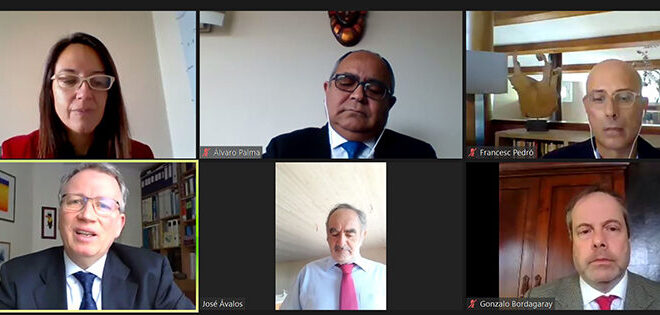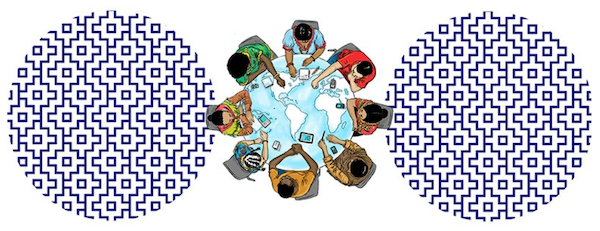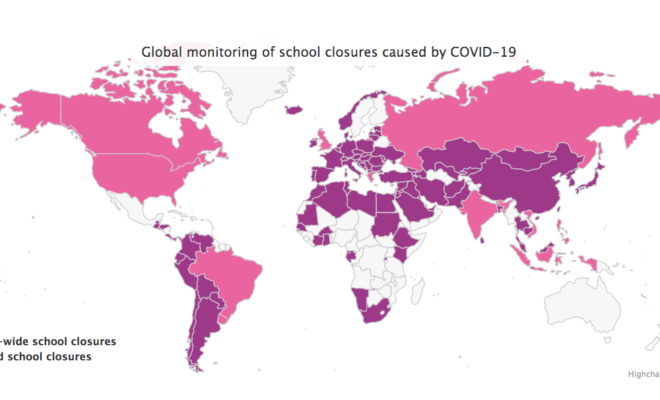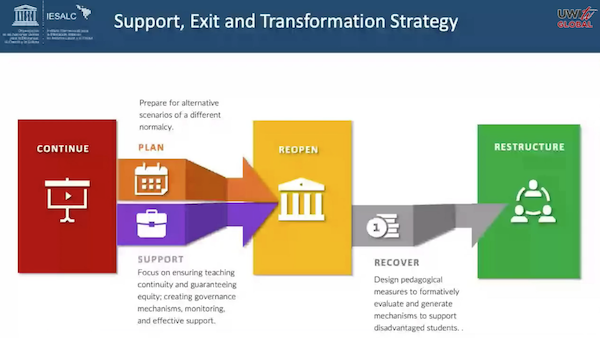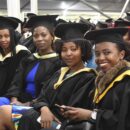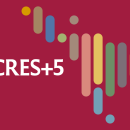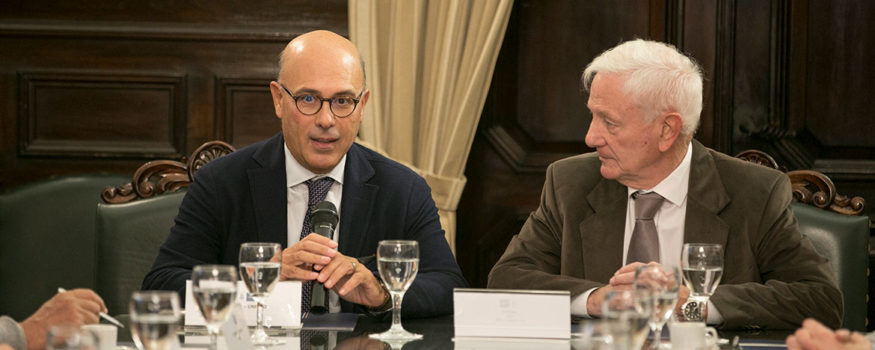Education is the main instrument to fight the social inequalities exacerbated by the pandemic
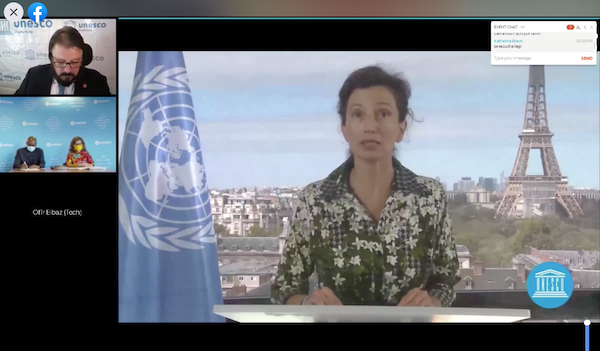
During the opening of the dialogue table convened by UNESCO on September 10, Audrey Azoulay, Director General of UNESCO, recalled that COVID-19 has an effect on all layers of society and that it has brought to light gaps that reflect the injustices and social inequalities that affect the cohesion of societies, mainly exposing the vulnerability of indigenous communities, gender differences and poverty. She emphasized that “45 million people will be added to the 230 million who are already in a state of poverty”.
Azoulay stressed that the greatest challenge is “to overcome divisions and not lose the achievements obtained so far”. She presented several initiatives that have been carried out in Latin America and the Caribbean to combat social inequalities, including the Management of Social Transformations Program (MOST); collaboration with Telefónica in Argentina to allow students to have access to the Internet; the supply of tablets in El Salvador, among others. “It is vitally important to showcase those inclusive and resilient educational systems that serve as an example to combat the pandemic,” she said.
She indicated that in order to eliminate these inequalities from the root, education must begin with young people: 63% of the region’s population is under 30 years of age and 82% of students are not attending classes. Today, more than 1/3 of students do not have access to computers from home. She also drew attention to the current situation of heritage and culture in the region, where 89% of world heritage sites have had to close their access.
Yahima Esquivel Moynelo, President of the Group of Latin American and Caribbean Countries (GRULAC) and Cuban Ambassador to UNESCO, highlighted that one of the consequences of the COVID-19 pandemic could be the perpetuation of underdevelopment in the region, and therefore invited to implement inclusive policies based on cooperation, solidarity and dialogue in order to leave no one behind,. She stressed UNESCO’s leadership in supporting Member States to counteract the effects of the COVID-19 pandemic.
Commitment to a common agenda
Rigoberta Menchú, Guatemalan Nobel Peace Prize winner, intervened to emphasize the need to create a common agenda with a dose of humanity to empower and give prominence to people and local experiences, returning to the core of society, to ancestral knowledge, to the family, to the medicinal plants of mother earth.
Boaventura De Sousa Santos, professor at the University of Coimbra, in Portugal, rescued the need to value the creativity put into practice by the most vulnerable communities during and after the pandemic. He also emphasized the need for art, culture and knowledge towards the transition to a new normality.
Simone Cecchini, director of the Social Policies division of the United Nations Economic Commission for Latin America and the Caribbean (ECLAC), recalled that the 300,000 deaths in Latin America and the Caribbean due to the pandemic are equivalent to 1/3 of the world’s deaths, placing 2020 in the worst economic crisis of the last 100 years. 54% of the workers belong to the informal economy and suffer marked inequalities such as overcrowding, lack of drinking water, difficulty in using technology; 40% of the population is not connected to the Internet and 32% cannot do tele-education, which will lead to an increase in school dropouts with a negative impact that could be devastating on the well-being of children and young people.
“We need a change in the development paradigm. More than talking about reconstruction, what we need is a transformation with equality and sustainability in order to advance in the construction of a welfare state that is supportive, efficient, with effects on human capacity, and that increases the productivity of workers”, he concluded.
Impacts and opportunities for the region
Michelle Mycoo, professor of urban planning at the University of the West Indies (Trinidad and Tobago), spoke on behalf of the Caribbean about the impact that the pandemic has had on the hotel and cultural industry, SMEs, health, inflation, remittances, public debt, and many other aspects, while also exacerbating domestic violence, gender imbalance, the digital divide, and crime, among others. But she also brought up the positive impacts: innovation, creation of new technologies to create businesses, the promotion of the agricultural sector, access to free Wifi for students, the recovery of marine resources, environmental advantages, stress reduction, new educational tools. “Alterations are good for redesigning our societies, as long as they are not at the expense of the poor and vulnerable,” she said.
Pablo Gentili, Secretary of Educational Cooperation and Priority Actions of the Ministry of Education of the Argentine Nation illustrated the panorama in figures: more than 90% of the countries in the world have their GDP decreased significantly in what has been the worst economic crisis since the 2nd World War. One of the most significant consequences is that 44 million people are added to the percentage of unemployed in the region, that is, more than 18 million people are in extreme precariousness. It will go from 185 million poor people to more than 230 million and from more than 67 million people in extreme poverty to more than 100 million.
He underlined the implementation of policies to attack inequalities in Argentina, including strategies to guarantee the pedagogical continuity of all children and young people, increase the access to the internet declared as a public good, develop public platforms for access to education, access scientific data , work on the ethical dimensions of the development of Artificial Intelligence and strengthen international cooperation. “It is essential to defend public education and public investment in education to reverse the levels of inequality that guarantee the rights of workers in the area of education”, he said.
Jhon Antón Sánchez, professor at the Bolivarian University of Quito, stressed that the pandemic has exacerbated racism and could increase conflicts linked to the shortage of resources and forced migration. On the other hand, he spoke out in favor of reparation for indigenous communities, allowing them access to their rights: equality, education, health, justice.
At the end of the dialogue, Julio Carranza, head of the UNESCO Office in Guatemala, summarized what had been presented in both panels, emphasizing that there has been a decline in poverty and human rights affecting the most vulnerable communities, that the rescue of public policies is essential in order to recover the State as the main instrument of democracy, that the market is fundamental but must be subordinated to democracy and politics, and that there is a concern for distance education and the challenge of returning to schools.
In the photo Audrey Azoulay, Director General of UNESCO (in the center right); Julio Caranza , Head of the UNESCO Office in Guatemala (in the upper left corner); Gabriela Ramos, Deputy Director General for UNESCO Social and Human Sciences; and Firmin Edouard Matoko, Deputy Director General of UNESCO’s Priority Africa and External Relations (above in the lower left corner).
Watch the full event on UNESCO´s Facebook.
RELATED ITEMS
